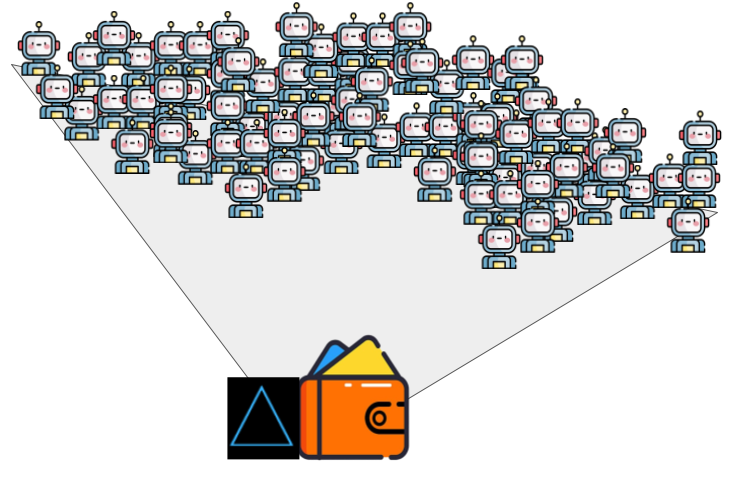Why you'dwant to use Mandates
If you try to implement similar controls using smart contracts or smart contract wallets, you’ll hit several major limitations:
- Every possible execution path must be pre-programmed in advance
- You lose the flexibility to adapt or evolve with new agents
- You need expensive audits to verify that agent logic is safe
- You’re locked into a VM, a proprietary language, and custom infra
- It’s very difficult to go cross-chain (or off-chain) beyond just the EVM stack
Saline Takes a Different Approach
There are no smart contracts in Saline. No virtual machines. No new language to learn.
You can just write the mandates using:
- our LLM interface
- the drag-and-drop UI
- the Python SDK
The logic is published on-chain, and attached directly to the wallet itself.
What You Get
- Low-cost rule enforcement
- No reliance on opaque contracts or external systems
- No need to trust or audit your agents — just let them run
- Rules are public, queryable, and easily understood by both agents and humans
Agents simply submit transactions. If the transaction matches the mandate, it executes. If it doesn’t, it fails — automatically and safely.
Beyond 1:1 — Open Agent Ecosystems

You’re no longer limited to a 1:1 agent-to-wallet setup.
You can define a mandate once and allow millions of agents to compete for access to the same asset — securely and transparently.
This flips the entire model of automation from gated and app-specific, to open, flexible, and composable.